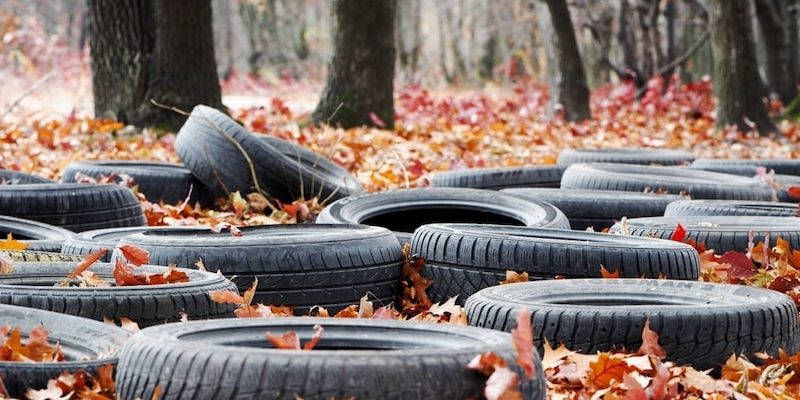We explain what ecological balance is, its characteristics and factors that interrupt it. In addition, we tell you the origin of the concept.

What is ecological balance?
Ecological balance, natural balance or natural balance is the idea that there is a stable balance in nature, that is, a situation of homeostasis in which any change in biological parameters is quickly compensated by an opposite reaction which thus maintains a continuous balance. For example, unexpected population growth (due to an unusual number of births) is compensated by its natural predators, so that overpopulation does not occur.
From this perspective, the same dynamics of action and reaction have occurred throughout the history of the planet, involving not only different forms of life, but also environmental factors (physical-chemical) with which life has a relationship. close and dependent relationship, such as the composition of the seas or the atmosphere. So, It would be human action (or natural disasters) that introduces imbalances that threaten ecological balance.
The notion of ecological balance has been harshly questioned and even denied by various scholars arguing that in the past there have been numerous catastrophic situations resulting from the indiscriminate increase in populations.
This is an idea related to the Gaia hypothesis, which proposes the functioning of the biosphere as a self-regulated system that tends to balance. In the 20th century this perspective was replaced in academia by catastrophe theory and chaos theory as models of understanding how the world works.
See also: Environment
Origin of the concept “ecological balance”
The idea that nature is governed by its own, immutable balance is very old. It can be traced back to classical Greco-Roman antiquity and Stoic religion which understood the world as a higher order that human beings had to replicate. Philosophers and historians such as the Greek Herodotus (484-425 BC) or the Roman Cicero (106-43 BC) were very enthusiastic about this perspective and saw in it evidence of the wisdom of creation.
Initially, the idea of ecological balance was limited to the relationship of reciprocal dependence between prey and predators (the food chain). With this meaning it emerged in the 20th century, when ecology was taking its first steps as a scientific discipline, and over time it extended to the rest of natural relationships.
Later it became the most popular perspective to think about the relationship between humans and nature: conserving regions in a wild state became the best conservation method, and human intervention and contamination came to be understood as a rupture of the natural balance.
The first questions about the concept of ecological balance arose in the mid-20th century but the concept and the term remained very popular for decades, and still do.
Characteristics of ecological balance
Traditionally, the following characteristics are attributed to ecological balance:
- It includes a cycle or a set of cycles in which living beings and their physical-chemical environment participate and that tend to balance and compensate for any gradual alteration.
- The radical alterations that is, very fast, very massive or very destructive, however, cannot be compensated and produce, therefore, imbalances that may be minor or catastrophic.
- Its main source of disturbance is human activities especially those with the greatest environmental impact, such as heavy industry, obtaining raw materials and energy production.
- It is essential for all species, since in a direct or indirect way they are linked to the other species around them. Loss of ecological balance brings extinction destruction of ecosystems and other negative consequences.
- It is closely related to the food chain and interspecific biological relationships, as well as the relationships between living beings and inorganic matter.
- Once the balance is broken, it would be very difficult to achieve it again and for this hundreds or thousands of years must pass.
Importance of ecological balance
The notion of biological balance assumes that the world exists in a more or less stable state, which human beings are capable of subverting. In that sense, It is a very critical vision of human activities and very favorable to environmentalism and conservationism.
Although it has been a scientifically discredited theory, it remains a popular view when rethinking the relationships between nature and humanity. It is based on the main notion that humans should preserve the world more or less as we find it, since any significant change in its nature will have an impact on us as well.
Factors that disrupt the ecological balance
The factors that interrupt or destroy the ecological balance can be grouped into two different types:
Human origin factors. They are a consequence of the activity of human beings and their model of existence. These include:
- The extraction of raw materials and minerals from the ground through mining, agriculture, deforestation, among other economic activities.
- The presence in ecosystems of highly harmful substances that nature takes a long time to process and decompose. That is, pollution.
- Excessive energy consumption which requires the combustion of materials that pollute the atmosphere.
- The introduction of invasive species as has often happened in history, with the introduction of species from one continent to the other.
- The overexploitation of natural resources.
Natural origin factors. They are factors that do not arise from human activity, but are the result of catastrophic natural conditions. These include:
- Volcano eruptions which modify the landscape and throw tons of toxic materials into the atmosphere, seas and soils, in addition to changing the temperature balance of the water and the atmosphere with their burning lava.
- Earthquakes, fires and other natural disasters capable of drastically altering the relief or biome, and destroying entire habitats.
Continue with: Enthalpy
References
- “Ecological balance” in Wikipedia.
- “Ecological balance: essential for species” at the National University of the Litoral (Argentina).
- “'Natural balance', an old but erroneous concept” in National Geographic.
- “Ecological Balance” at World Wildlife Fund.


